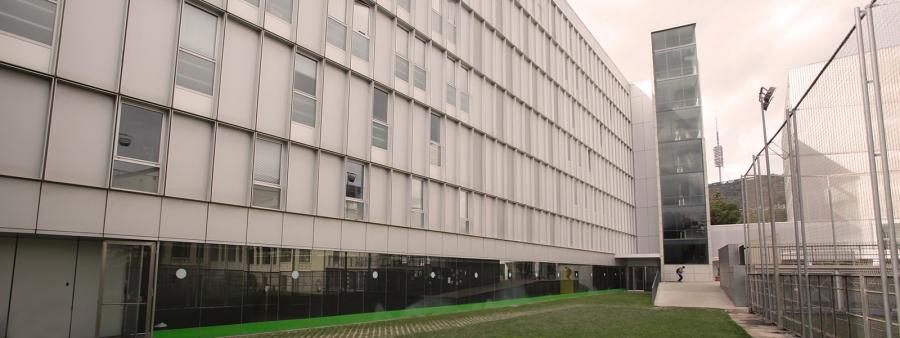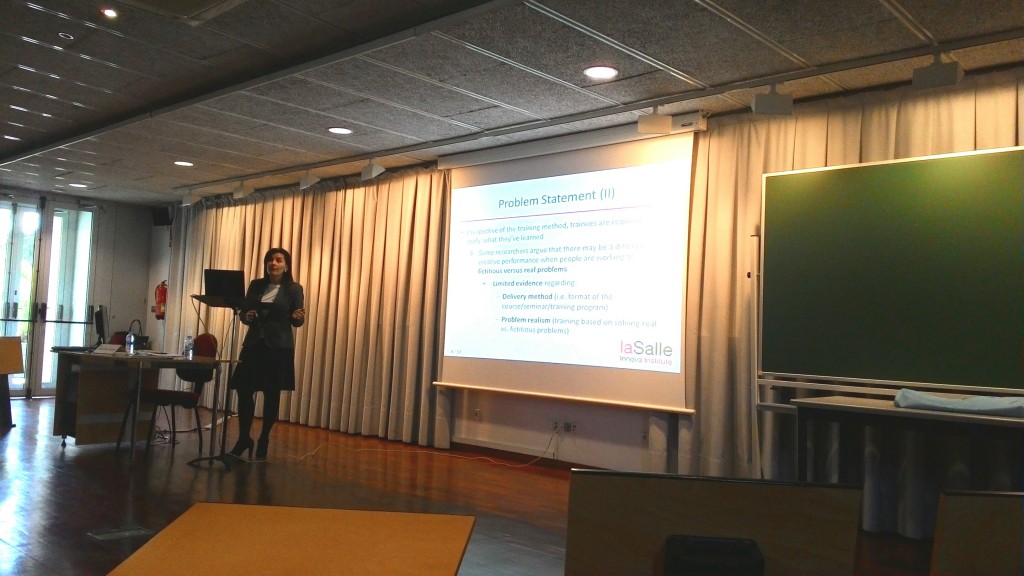Doctoral Thesis Defense. Part II

Last Friday, 13th of February, Matilde Martínez presented her thesis defense at La Salle. The title of her thesis is “Improving Creativity Training: An examination of the effects of delivery method and problem realism on creative performance in post-training ideation”.
As we mentioned in the first entry, we are presenting the abstract of the research work. This time we will learn about the thesis experiments, its findings and implications.
As it was stated the purpose of this dissertation is to examine the effect of training on creative performance.
One hundred and nine groups of employees of forty five Spanish companies (981 participants overall) participated in different training experiences conducted to ascertain if and how the aforementioned factors (type of training and problem realism) affect creative performance. Each group was submitted to a specific training experience and group creative performance was measured by using three measures: fluency, originality, and elaboration of ideas produced. Statistical analysis of performance differences between each training experience and each measure was conducted using Student’s t-test and analysis of variance (ANOVA). Results of the data analysis reveal a positive effect of training on creative performance and also showed that training based on experience is better suited for creativity training. In addition the empirical results also reveal that working on real-life problems as opposed to fictitious ones, enhances creative performance.
The contribution made by this study to the field of creativity research is twofold. First it provides additional empirical evidence regarding the factors conditioning the effectiveness of creativity training. Specifically, the empirical application looks at training delivery method and task realism. These factors have been under examined by previous creativity research literature.
The empirical findings of this study indicate the existence of a relationship between training delivery method and post-training ideation performance. Specifically, ideation performance is enhanced by training delivery based on experiential learning. The groups that received this type of training generate more than twice as many ideas as the groups that received no training (9.07 vs. 4.34) and almost three times more ideas than the groups that received lecture-based training (9.07 vs. 3.67). In comparison to the ideas generated by the groups that received lecture-based training, the ideas generated by experiential learning groups received superior rating scores for originality and elaboration. In addition, a relationship was also established between problem realism and post-training ideation. The groups that worked on solving real problems and were trained through experiential learning rated higher on the degree of elaboration of the ideas generated than both lecture-based trained groups (3.47 vs. 3.39) and untrained groups (3.74 vs. 3.47). Experiential learning groups also produced more ideas and were rated higher on the originality dimension than lecture-based training groups (3.98 vs. 3.78).
Another, less direct contribution, is that the study also provides evidence regarding the relationship between creativity training and creative performance. Specifically, the empirical findings establish a positive relationship between training and creative performance. Trained groups, produced more ideas and also show superior results in terms of originality and elaboration as compared to untrained groups.
By examining the post-training creative output of groups that received training in different formats and have worked on different types of tasks, the study provides evidence regarding the effectiveness of training, valuable not only to academia but also to practitioners in their quest of developing the most effective creativity training programs.
